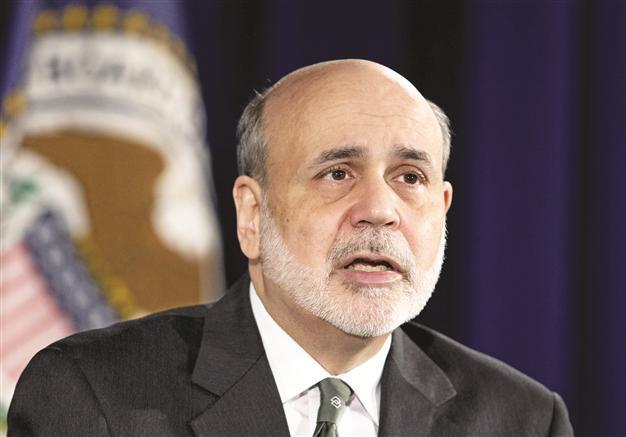Fed minutes reveals concerns over policy
WASHINGTON - The Associated Press

Federal Reserve Chairman Bernanke speaks at a conference. The revealed Fed meeting minutes shows the concerns over Fed’s asset purchases. AP Photo
Several Federal Reserve policymakers were concerned last month about the risks of the Fed’s efforts to boost the U.S. economy by keeping borrowing costs low for the foreseeable future.
Minutes, or written records, of the Fed’s Jan. 29-30 policy meeting released on Feb. 20 showed that some officials worried about the Fed’s monthly purchases of $85 billion in Treasuries and mortgage bonds. They expressed concern that the continued purchases could eventually escalate inflation, unsettle financial markets or cause the Fed to absorb losses once it begins selling its investments.
In the end, the Fed voted 11-1 last month to keep its bond-buying program open-ended and at the same size. It said in a statement that the purchases would continue until the job market improved substantially. The bond purchases are intended to keep interest rates down to encourage borrowing and spending.
Still, the minutes suggested that the discussion over the risks from the bond purchases was more extensive than at the December meeting. Minutes of the December meeting had also pointed to divisions among Fed officials over how long the purchases should continue. The debate within the Fed has fed speculation that the bond purchases might be scaled back or ended altogether this year.
Stock prices fell following the release of the minutes. The prospect of higher interest rates could hurt corporate profits and stock prices over time.
The minutes showed that “several participants” thought the Fed should be ready to vary the pace of its purchases as it adjusts its view of the economy or the benefits and costs of the purchases. The policymakers asked Fed staffers to provide a deeper analysis at upcoming meetings of the issues raised in the discussion. Some Fed officials thought an ongoing assessment of the bond purchases might cause the committee to slow or end its purchases “before it judged that a substantial improvement in the outlook for the labor market has occurred.”
